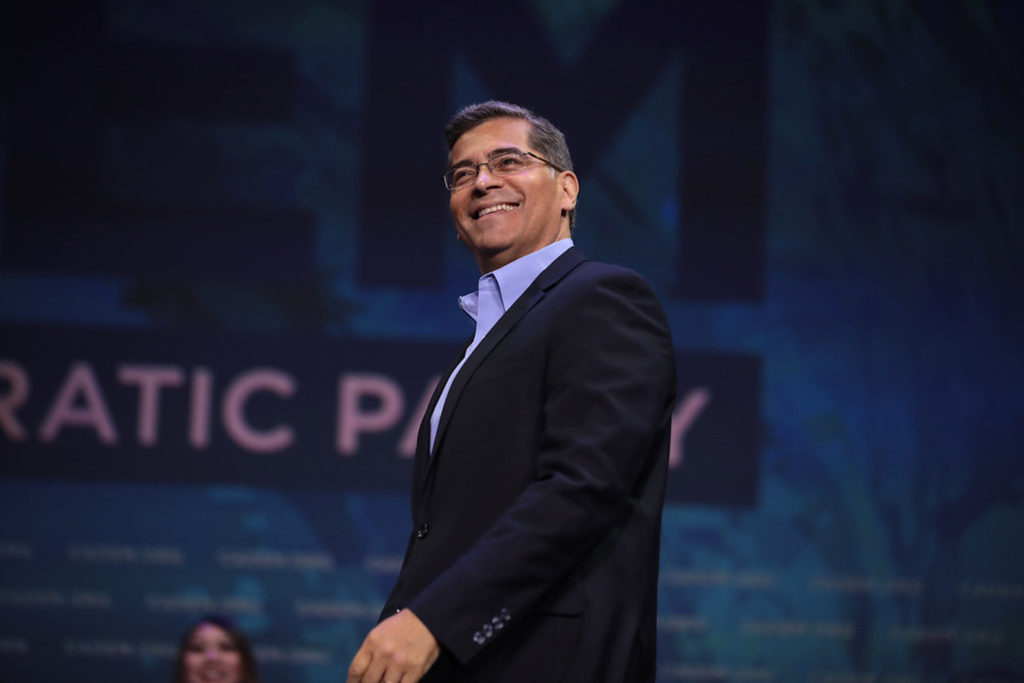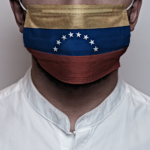On March 15, 2022, scholars at the Ethics and Public Policy Center sent a letter to Department of Health and Human Services Secretary Xavier Becerra urging him to immediately revoke his declaration that a Covid-19 public health emergency exists. The current emergency declaration, which was renewed for the 8th time on January 16, is set to expire next month.
This statement was originally posted here and is reprinted with permission of the Ethics and Public Policy Center.
Dear Secretary Becerra:
On January 16, 2022, you declared, for the ninth time since January 2020, a public health emergency due to the presence of Covid-19 in America. Enough is enough. It has been more than two years since Covid came to our shores and we have adapted to and addressed this threat. The overwhelming majority of Americans have been vaccinated or have natural immunity, and everyone has free access to potentially life-saving and disease-mitigating measures. Nevertheless, government and private actors continue to impose vaccination mandates, mask mandates, and other restrictions on Americans’ daily lives in reliance on your continued emergency declarations. We therefore ask that you immediately revoke your declaration because it is causing real and present harm and because there is no longer a public health emergency to address.
Start your day with Public Discourse
Sign up and get our daily essays sent straight to your inbox.Human flourishing requires both public health and individual liberty and an appropriate balance between these goods when they conflict. We know that human beings flourish in community; we are social by nature. As such, we should not be surprised that government Covid-19 regulations mandating school closures, lockdowns, masking, and vaccination have isolated us from our fellow citizens and imposed significant attendant harms. These mandates set off rancorous debates over their purposes and effectiveness when they were first imposed.
But now the debate has shifted. President Joe Biden and Speaker Nancy Pelosi took off their masks at the State of the Union, and even the most pro-mandate forces no longer argue that the mandates will be the solution to Covid. Yet some governors are urging further extension of the nationwide public health emergency. It is no longer January 2020 when the public health emergency was first declared. The public health emergency should end. It is time for all school closures, lockdowns, mask mandates, and vaccine mandates to end so that responsible adults can once again be free to weigh the risks and benefits of these interventions for themselves and their families.
Much has changed since restrictions and mandates were first imposed. First, and most obviously, 81.5 percent of Americans have received at least one dose of a Covid vaccine. What gets less attention is the fact that tens of millions of additional Americans have been infected with Covid-19 and developed natural immunity. This natural immunity puts them at much lower risk of subsequent infection and infection of others according to nearly all of the available scientific literature. Indeed, the risk of Covid-19 infection decreases by 80.5 percent to 100 percent among those who have had Covid-19 previously, and some studies place the odds of hospitalization from a repeated infection at 0.03 percent, and the odds of death at 0.01 percent.
Moreover, we now have multiple vaccines and boosters free to anyone in the United States, new therapeutics for those who have the virus, masks for anyone who wants them, and free testing sites all over the United States. All of these things are widely available for Americans who have not acquired natural immunity or artificial immunity or are at elevated risk of Covid due to advanced age, comorbidities, or compromised immune systems. Because those at elevated risk can protect themselves, there is simply insufficient reason to mandate school closures, lockdowns, masking, or vaccination.
Currently, cases, hospitalizations, and deaths from Covid-19 are falling throughout the United States. The number of intensive care unit (ICU) beds in use, and thus the number of stressed ICUs, has also decreased dramatically over the last month in nearly every state. This is not to dismiss the daily number of deaths, which is currently around 1,000. However, if one looks at the death rates of Covid-19 per 100,000 people, what was once nearly 300 has fallen to 0.39 per 100,000 people. There are two main explanations for this. One is that Covid is experiencing a seasonal dip as winter recedes and people congregate less indoors, and the other is that Covid is just having a hard time finding more vulnerable people to infect.
To put this in context, the annual death rate of influenza per 100,000 people is 1.8, the annual death rate from traffic accidents per 100,000 people is 11, and the annual death rate from drowning per 100,000 people is 1.23. Just as individuals choose how to approach risk in certain common scenarios, such as choosing to get in a car or go swimming, one can choose to mitigate one’s risk of death from Covid-19 to a level at or below that of other daily encounters.
We were unquestionably in a precarious position at the beginning of the pandemic. We did not know how to treat Covid with therapeutics and did not have any vaccines. Scientists possessed a paucity of knowledge about the pathology of the virus. And hospitals worried about limited medical equipment. We faced an unknown, deadly virus with limited medical treatments—a terrifying prospect. In this climate of fear, school closures, lockdowns, and mask mandates seemed to some to be the best options available to the government. Our politicians readily adopted the adage that “desperate times call for desperate measures” and much of the public went along because many believed that surely our government had adequately studied and prepared for something like this. But it had not. For instance, after our government first declared masks ineffective at stopping the spread, in 2020, the CDC called cloth masks a “critical tool” in the fight against Covid-19. But during the pandemic minimal robust research on this topic was done; and when it was done, the results seemed to contradict initial authoritative proclamations. A single cluster randomized clinical trial demonstrated the efficacy of surgical masks and the inefficacy of cloth masks.
There were staggeringly high costs to these interventions, too:
- School closures: The CDC found that in children aged 5-12 years, “virtual instruction might present more risks than does in-person instruction” as it relates to child and parental mental health. This is a remarkable conclusion, given the known dangers of Covid. School closures left students on average five months behind in mathematics and four months behind in reading during a school year with virtual learning. More pernicious effects were found among majority black and low-income schools. High school students are now more likely to drop out of school and high school seniors are less likely to enroll in postsecondary education. This is true even of students in higher education. In one study at West Point, online students saw their grades drop by 0.215 standard deviations, an effect size that was largest for academically at-risk students. Other studies also demonstrated that students in online courses get lower grades and are less likely to graduate than those taking in-person classes; this was borne out in some literature even prior to the pandemic. Remote schooling leaves an entire generation of students, particularly those least privileged amongst us, playing catch-up for the rest of their lives.
- Lockdowns: At the onset of the pandemic, cancer screening programs were interrupted with the anticipated outcome of increased numbers of avoidable cancer deaths and delayed diagnoses. As the pandemic progressed, the American Academy of Pediatrics declared a national emergency in children’s mental health due to the serious toll of the Covid-19 pandemic. For example, during February-March 2021, suspected suicide attempt emergency department visits were 50.6 percent higher among girls aged 12-17 than during the same period in 2019, with an increase of 3.7 percent among boys in the same age group. Drug overdose-related deaths were 9-50 percent higher from March 2020 to July 2020 compared to the period of December 2019 to March 2020 in Georgia, Kentucky, and Minnesota. In San Francisco alone opioid overdose related deaths increased by 55 percent between March, 16, 2020, and April 18, 2020. In-person cardiology office visits dropped by over 60 percent in some areas and those who arrived in person presented later in the course of their heart attack, a marker of poor prognosis. Primary care visits dropped more than 20 percent despite telemedicine availability. There was also a 50 percent reduction in blood pressure evaluations and a 38 percent reduction in cholesterol level evaluations during the pandemic. Clearly, based on the above data points and more, social isolation can kill, both by limiting the medical care people seek and by affecting the mental health of those distanced from their communities and loved ones.
- Mask Mandates: N95 masks, which are effective at preventing respiratory infections like Covid, do have some adverse effects, including shortness of breath, rash, acne, skin breakdown, and impaired communication. However, the mask mandates for adults are far less consequential than the mask mandates for children. The World Health Organization recognized this when it recommended against masking children ages 5 and younger and did not routinely recommend masks for children ages 6 to 11. They based this recommendation on “children’s psychosocial needs and developmental milestones.” And while the long-term effects of masking children aren’t yet definitive, there is some preliminary evidence of deleterious consequences. Word identification is significantly more difficult; certain mask types hinder emotion recognition, trust, and/or facial recognition; speech and language development may also be impaired by mask wearing. Consequently, masks may not be as benign as they might seem.
- Vaccine Mandates. Vaccine mandates have resulted in significant social and economic costs as well as ethical concerns. Mandates failed to take into account natural (infection-induced) immunity in those who have recovered from Covid, which is highly efficacious, as noted above. Currently available evidence on Covid vaccines, particularly in the era of the Omicron variant, calls into question prevention of viral transmission. As Dr. Rochelle Walensky, director of the CDC, said in July 2021: “High viral loads suggest an increased risk of transmission and raised concern that, unlike with other variants, vaccinated people infected with Delta can transmit the virus.” This fact undermines the common good argument that one has a duty to get vaccinated for the sake of protecting others. One-size-fits-all mandates also failed to consider epidemiological findings regarding risk stratification: morbidity and mortality from Covid differs by several orders of magnitude between a healthy child or adolescent and an elderly individual. The ethical principle of free and informed medical consent—guaranteed by the Nuremberg Code, the Helsinki Declaration, the Belmont Report, and the Federal Common Rule—was abandoned when vaccine mandates required experimental EUA (emergency use authorization) vaccines. Thousands lost their jobs for declining a novel injection whose full data remained hidden from independent scrutiny. Indeed, under its initial plan the FDA would finish releasing Covid-19 vaccine review documents in 55-75 years. That only changed days ago due to a court order. Mandates also harmed the economy, including the healthcare sector, leading to thousands of hospital job losses and early retirements. The vaccine passport infrastructure—which welds public health to digital surveillance and the police powers of the state—has created an intrusive biosecurity surveillance regime that invades personal privacy and undermines bodily autonomy. This has ominous implications for individual rights and societal flourishing.
We object to any continuation of the public health emergency. On the contrary, it is time to declare this emergency over and once again let people take responsibility for themselves.
Sincerely,
Ryan T. Anderson, Ph.D. President, EPPC
Aaron Kheriaty, M.D. Fellow and Director Bioethics and American Democracy
Aaron Rothstein, M.D. Fellow Bioethics and American Democracy
Roger Severino, J.D. Senior Fellow and Director HHS Accountability Project
Rachel N. Morrison, J.D. Fellow HHS Accountability Project














